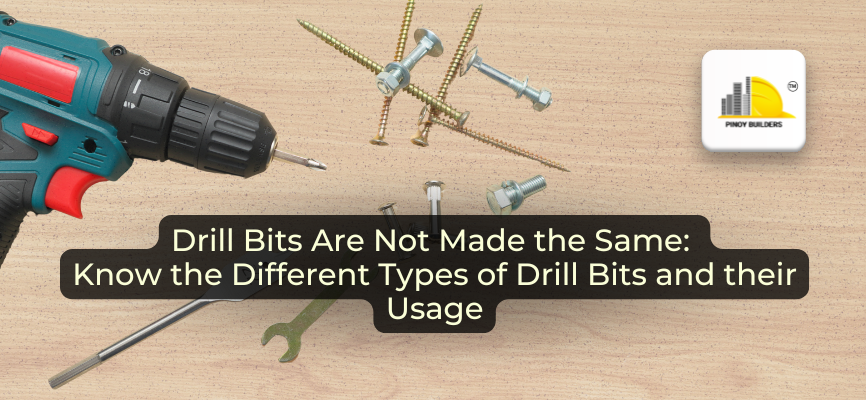It’s a common assumption that all drill bits are the same, and most of us are likely guilty of grabbing the nearest tool, believing it will work just fine. But the truth is, using the wrong drill bit for a project can lead to inefficiency, poor results, and even damage to your tools or materials. Understanding the different types of drill bits and their specific purposes can make a significant difference, whether you’re working on a DIY project or a professional job.
In this article, we’ll walk you through the essential drill bits, their applications, and how to choose the right one for your next project.
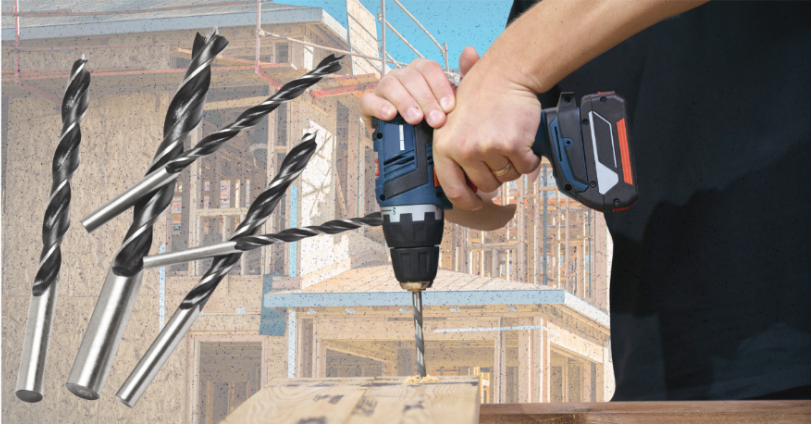
Know the Different Types of Drill Bits and their Usage
There are many different types of drill bits available. Choosing the best one for your project depends on various factors, such as the material, where, and how you will use it. Below are the most common types of drill bits for your next DIY or construction project.
1. Twist Drill Bits
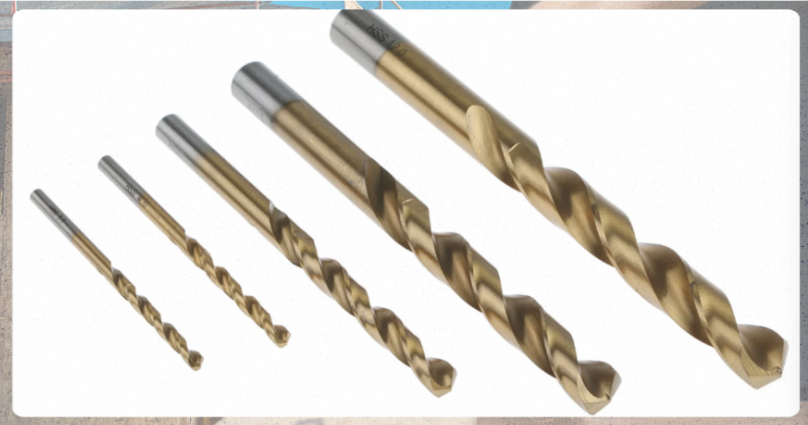
Image from RS Philippines
Twist drill bits are the most common type you’ll find in any toolbox. You can use them on a variety of materials such as wood, plastic, and metal due to their incredibly versatile nature. Available in various sizes, twist drill bits are excellent for general-purpose drilling, making them perfect for most household projects.
2. Masonry Drill Bits
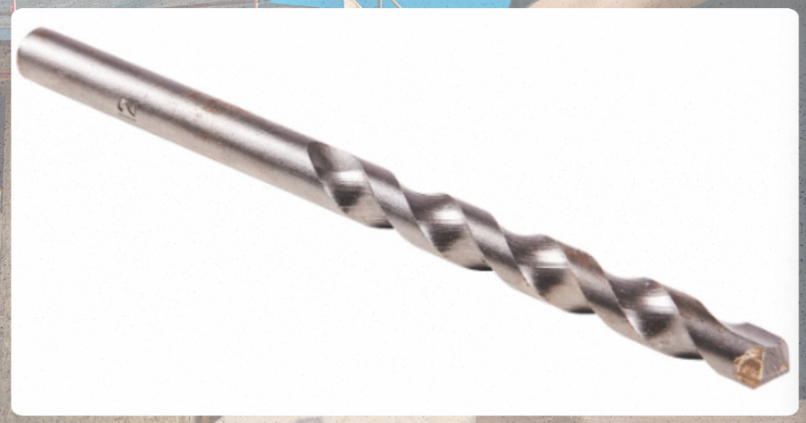
Image from Armtech
Masonry drill bits are an indispensable tool for drilling into challenging materials such as brick, stone, or concrete. The durable, often carbide-tipped tip of these bits withstands the hardness of masonry surfaces. Their tough build ensures you get the job done efficiently without wearing down too quickly.
3. Spade Drill Bits
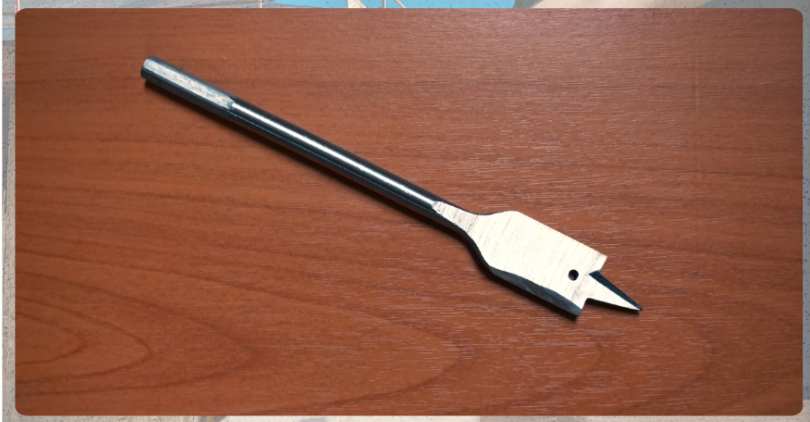
For larger holes in wood, spade bits are the go-to choice. These bits feature wide, flat blades that make them ideal for tasks like framing or rough construction where precision isn’t as critical. They’re efficient at quickly boring out large holes, especially when you’re working on projects that need speed over finesse.
4. Forstner Drill Bits
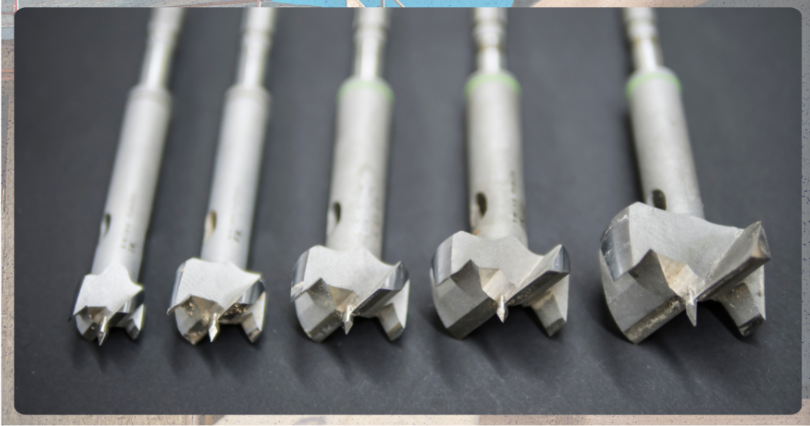
For those looking to create clean, precise holes in wood, Forstner bits are the right tool. Cabinetry and furniture-making often use them because they produce smooth holes with flat bottoms, ideal for more detailed woodworking.
5. Auger Bits
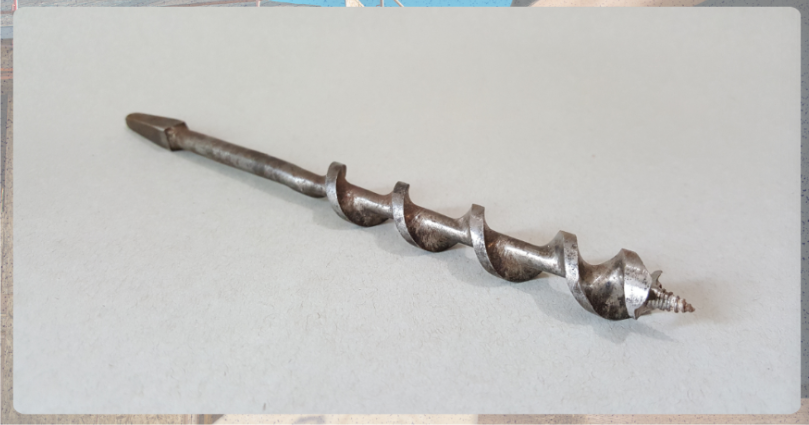
Auger bits feature a spiral design that helps pull material out of the hole as you drill. This makes them excellent for deep wood drilling, especially when precision and a clean hole are essential. Carpentry and timber framing projects commonly use them.
6. Hole Saws Drill Bits
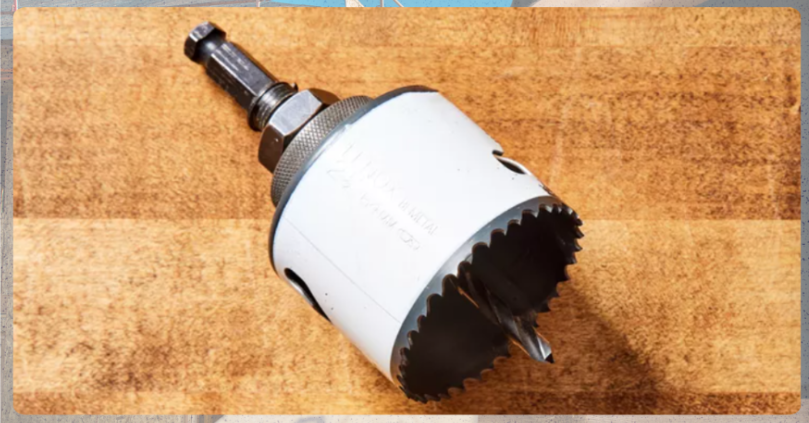
Image from The Spruce / Kelsey Hansen
Need to cut a large-diameter hole? Hole saws are the solution. Plumbers and electricians typically use them to drill sizable holes in materials such as wood, metal, or plastic. Hole saws are efficient and allow for a clean, large cut with minimal effort.
7. Countersink Bits
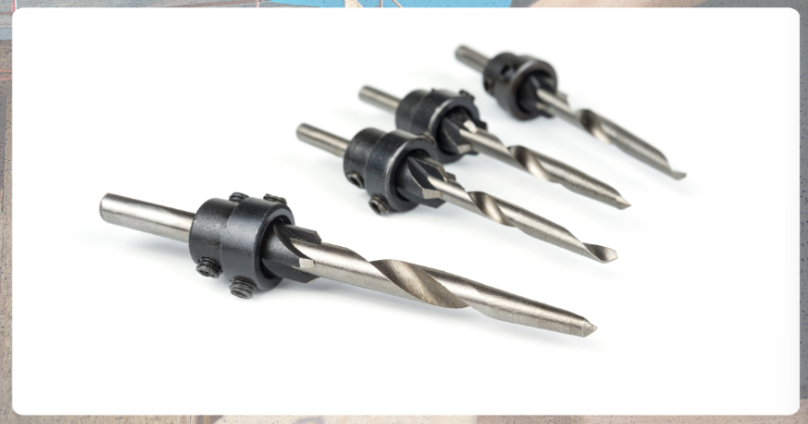
For a polished finish in woodworking, countersink bits are essential. These bits create a beveled hole that allows screws to sit flush with or below the material surface, giving a clean, professional look to the project.
8. Step Drill Bits
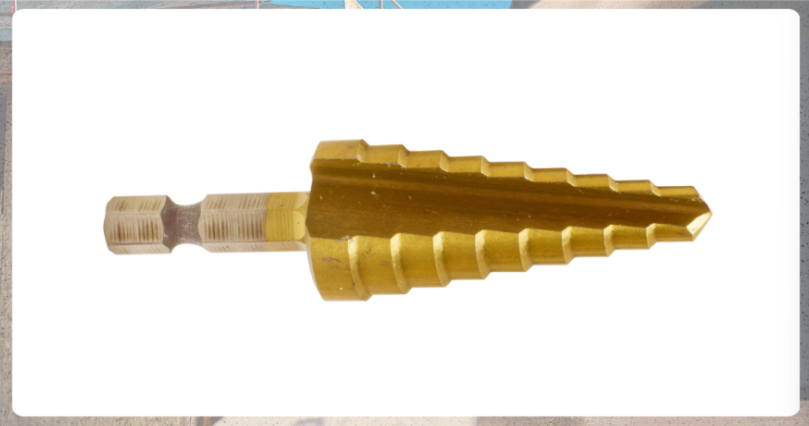
Step drill bits are perfect for drilling holes of various sizes without having to change the bit. Primarily used in metalworking, these bits create clean, precise holes and are ideal for sheet metal projects where multiple hole sizes are required.
How to Choose the Right Drill Bit for Your Project
Selecting the right drill bit can be the difference between a successful project and a frustrating one. Here are the things you should consider when choosing the right drill bit for your project.
- Material: The type of material you’re drilling—whether it’s wood, metal, plastic, or masonry—should guide your bit choice. For instance, twist bits work well with wood, but for concrete, you’ll need a masonry bit.
- Hole Size & Precision: The size and precision of the hole matter. For larger, rough holes, spade or auger bits work best, while tasks that require accuracy, like cabinetry, will benefit from Forstner bits.
- Project Scope: The nature of the project also dictates which bit you should use. Heavy-duty construction jobs may need robust bits like spade or masonry bits, while finer, more detailed work will require a precision bit like a twist or Forstner bit.
- Drill Compatibility: Lastly, ensure the bit you choose is compatible with your drill, whether it’s a corded drill, cordless model, or hammer drill.
Tips for Using Drill Bits Safely and Effectively
Drills can be dangerous when not used properly. Attaching a drill bit emphasizes this. For optimal results and safety, make sure that you follow these tips below:
- Match the speed setting on your drill to the material and bit type. This prevents overheating and extends the life of your drill bit.
- Apply consistent, moderate pressure to avoid damaging the bit or material. Let the drill and bit do the work rather than forcing it.
- Sharp bits are safer and more effective. Regularly check your bits for dullness and sharpen them as needed.
- Always wear goggles and gloves to protect against flying debris and accidental injuries.
Drill Bit Maintenance and Storage
To keep your drill bits in peak condition:
- Clean Them After Use: Remove debris and dust after each use to maintain performance.
- Lubricate Metal Bits: Lightly oil metal bits to prevent rust and corrosion.
- Store Properly: Use designated cases or racks to store your bits. This keeps them sharp, prevents damage, and makes it easier to find the right bit when needed.
Popular Drill Bit Brands and Their Products
When it comes to drill bits, choosing a trusted brand can make a huge difference. Here are some of the top names in the industry:
DeWalt
Known for their durable and reliable bits, DeWalt offers sets suitable for both DIYers and professionals.
Bosch
Bosch’s precision-engineered bits, particularly their masonry and multi-purpose sets, are well-regarded.
Makita USA
A brand synonymous with heavy-duty performance, Makita produces high-quality bits for large-scale construction projects.
Milwaukee
Milwaukee stands out with innovative designs like their Shockwave impact bits, ideal for use with impact drivers.
Know Your Bit
Understanding the different types of drill bits and their specific uses is essential for successful projects. Choosing the right bit for the job will help you ensure precision, safety, and efficiency in your projects, all while extending the life of your tools.
So, whether you’re tackling a small DIY project or a professional-level job, invest in quality bits and take the time to maintain them properly. Ready to get started? Assess your next project and make sure you have the right drill bits on hand for a smooth, successful outcome!


